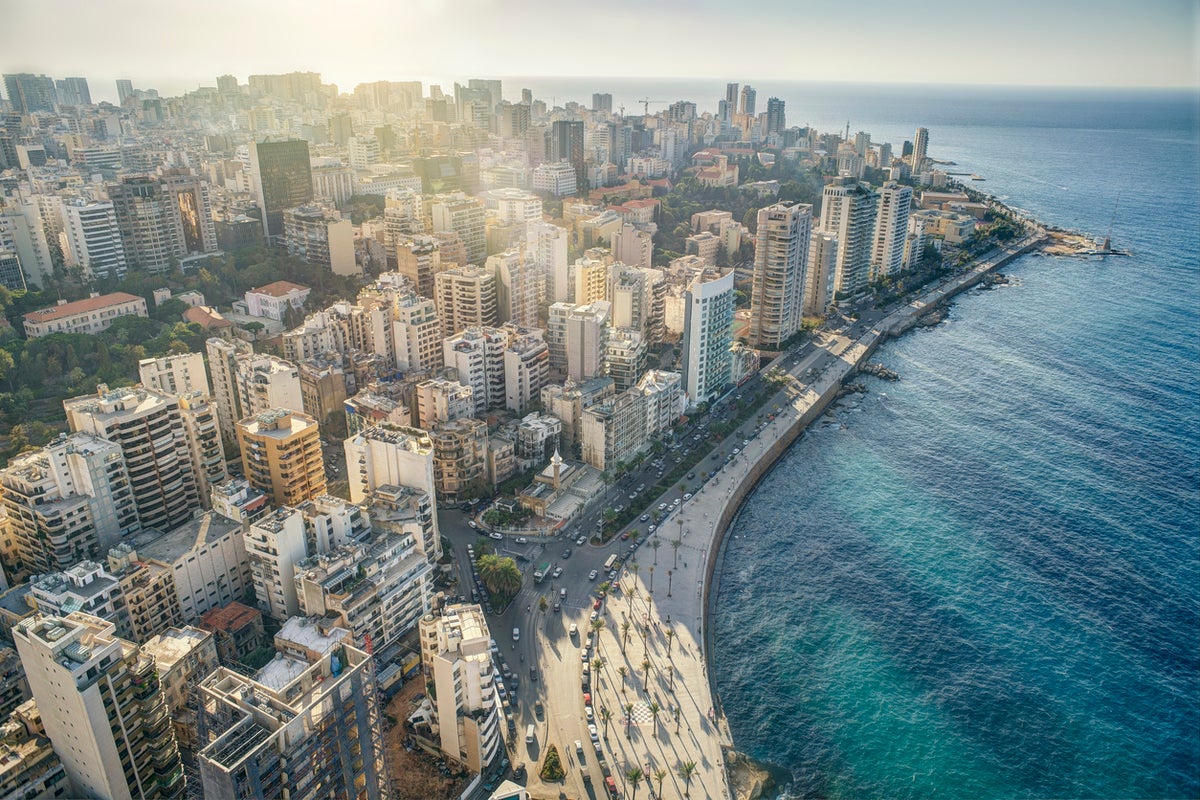
Following the outbreak of war in Israel, anxieties in bordering countries have been rising amid fears the fighting will spread to neighbouring territories.
Lebanon shares a border with Israel to the south, and the historic tensions between the two are threatening to flare up again, with Hezbollah – a Lebanese militant group – an important component in the potential escalation of the conflict.
On 18 October, AP reported that militants were killed on the Israeli-Lebanese border, while the US later warned citizens not to travel to Lebanon after the US embassy in Beirut was set on fire by protesters in the wake of President Biden’s visit to Israel.
Here is the latest information on whether the country remains safe for foreign travellers.
Where is Lebanon?
Lebanon sits on the Mediterranean Sea, sharing the border with Israel to the south— Lebanon sits on the Mediterranean Sea, sharing the border with Israel to the south
Lebanon sits to the north of Israel, bordering Syria to the north and the east. The capital, Beirut, sits along the Mediterranean Sea, and was a target of Israeli bombings during the Lebanon War in 2006.
Skirmishes between Israel and militant groups have so far been limited to areas around the border in the south, with an anti-tank missile shot from Lebanon landing in the northern Israeli town of Metula on the morning of 17 October.
What does the Foreign Office say?
The latest update from the Foreign Office (FCDO), dated 18 October, states that “You are advised against all travel to the whole of Lebanon. If you are currently in Lebanon, we encourage you to leave now while commercial options remain available.
“British nationals in Lebanon should register their presence with the FCDO through the link in Travel Advice”. The website also states that “if your passport contains an Israeli stamp, you may be refused entry to Lebanon even if you hold a valid Lebanese visa”.
If you are a British national currently in Lebanon, the FCDO urges you to register your presence in the country in order to provide updates.
As recently as 18 October, the official advice had been to avoid “all but essential travel” to much of the country, but this has changed in the wake of intensifying clashes and unrest. The FCDO states that “events in Lebanon are fast moving. The situation has potential to deteriorate quickly and with no warning.
“Commercial routes out of Lebanon could be severely disrupted or cancelled at short notice and roads across the country could be closed”.
Regarding the conflict in Israel specifically, it says: “[The] FCDO advises against all travel to Lebanon due to risks associated with the conflict between Israel and the Occupied Palestinian Territories. There are ongoing mortar, artillery exchanges and airstrikes in South Lebanon, on the border with Israel. Tensions are high and events could escalate with little warning, which could affect or limit exit routes out of Lebanon.
“There is also a risk of civil unrest. There have been large protests outside embassies, including outside the US and French embassies on 17 October. Further protests are expected. British Nationals should exercise caution and avoid areas where demonstrations may be held”.
Additional security risks are present in Lebanon due to the threat of terrorism and kidnapping, with groups mainly operating in Tripoli, areas close to the Syrian border (such as around Hermel and Aarsal), Palestinian refugee camps and the southern suburbs of Beirut. The FCDO states that “terrorists are very likely to try to carry out attacks in Lebanon,” adding that violence may occur between security forces, protesters and supporters of political groups.
What about flights to and from Lebanon?
Flights from the UK to Lebanon are currently operating as normal.
Will my insurance be invalid if I travel to Lebanon?
Anyone who chooses to travel to Lebanon will immediately have their travel insurance invalidated unless they have a specialist policy, as the FCDO advises against all travel to the country.
The conditions for cancelling your trip will be dependent on your provider, though if you have a trip already booked to Lebanon, you should be able to cancel and make an insurance claim as the Foreign Office is now advising against all travel there.
If already in Lebanon, contact your airline and insurance provider to find out the conditions of travelling home early.







